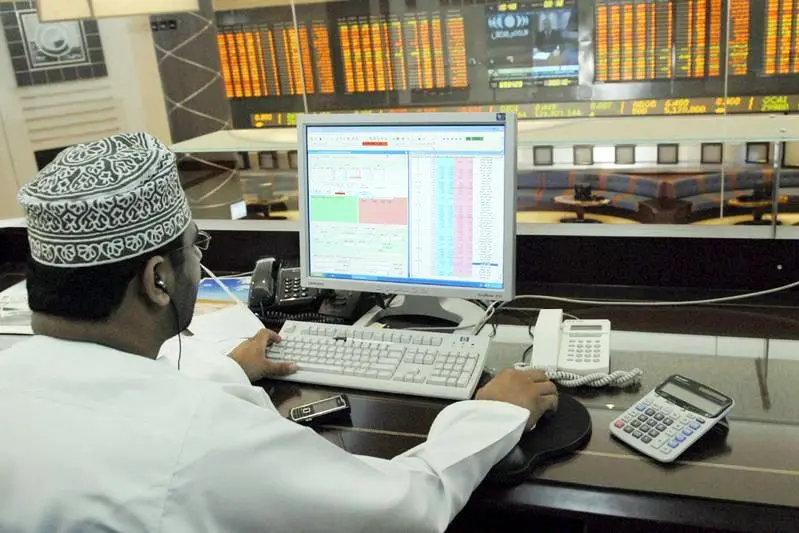PHOTO
An analysis of the third-quarter financial performance of 91 companies listed on the Muscat Stock Exchange (MSX) reveals a continuation of positive trajectories across several key sectors, including finance, manufacturing, energy and real estate. While losses persisted in the insurance and tourism sectors, a more granular examination underscores the disproportionate impact of a small subset of companies on the overall financial health of the MSX listed companies.
Just 2 companies within 22 loss-making companies accounted for nearly half of the total losses incurred.
The financial sector exhibited resilience in the reporting period, driven by robust banking performance. Increased lending activities and the favourable interest rate environment contributed a positive impact on net interest income. Bank Muscat maintains its market leadership with an overall profit of RO 171 million up from RO 159 million last year.
However, the overall sector's performance was tempered by challenges faced by the insurance industry. Notably, LIVA Insurance, despite reducing its losses by RO 5 million this quarter, still carries a significant year to date loss of RO 11 million, due claims from the adverse weather conditions in the UAE. Even excluding LIVA, the sector has underperformed by 12% compared to prior year. While leasing companies demonstrate modest profitability growth, the overall sector outlook remains positive, supported by the banking sector's strength.
The industrial sector, encompassing construction, manufacturing and real estate, continues to exhibit mixed performance. While certain segments demonstrate resilience, others grapple with persistent challenges.
The construction sector remains under pressure, with Raysut Cement's escalating losses. The company reported a loss of RO 5.7 million, up from the previous year's RO 3.3 million loss. Galfar also faced setbacks, incurring a loss of RO 4 million compared to a profit of RO 1.5 million in the prior period. Elevated expenses and losses from subsidiaries contributed to these financial difficulties.
Oman Refreshments reported a major decline in profitability, with losses amounting to RO 1.9 million compared to profits of RO 6.6 million in the previous year, primarily from the backlash against American products due to the prevailing geo-political situation between Israel and Gaza, decreasing revenue by 37.8%. Dhofar Foods and Investment despite being restructured also experienced a downturn, incurring a loss of RO 3 million up from RO 1.2 million last year, primarily due to increased financing costs and expenses from its subsidiaries.
Conversely, the manufacturing sector has exhibited some signs of revitalisation. Oman Cables profitability surged, reaching RO 17 million, surpassing the previous year's RO 15 million.
Voltamp also showed profitability of RO 2.9 million. Asaffa Foods also produced positive results this quarter with profits of RO 4.5 million compared to RO 2 million last year.
Oman Flour Mills demonstrated remarkable growth, reporting a profit of RO 4.6 million, a substantial improvement from the mere RO 275,000 earned in the prior year.
The company's recent agreement with Omran Group for usufruct of additional land bodes well for future expansion plans. Overall, the industrial sector presents a diversified landscape, with segments like real estate also showing some positive trends with the launch of two new funds supporting the overall sector.
The service sector maintained a relatively stable trajectory, with key players demonstrating consistent financial performance. In the energy sector, Phoenix Power emerged as a dominant force, surpassing Abraj Energy and reporting profits of RO 26 million. Another highlight of this quarter was Barka Water and Power reporting a profit or RO 2 million compared to RO 58,000 last year, as the company has secured new distribution agreements for up to 8 years. The oil and gas sector also witnessed notable activity, with OQ Gas Networks contributing significantly to profitability, although profits declined to by 15% to RO 38 million from RO 45 million last year.
The recent IPO of OQ Exploration and Production, the largest in Oman, holds significant promise and was oversubscribed by 2.6 times. Interestingly, although still profitable, all 3 petrol stations have reported reduced profitability, with Shell recording a drop of 22%. Finally, despite all the good news about increased tourist numbers, 3 out of the 4 listed tourism companies are still reporting losses, which may be due to overcapacity and new entrants in the market (e.g. St Regis and Mandarin being the most recent).
2022 © All right reserved for Oman Establishment for Press, Publication and Advertising (OEPPA) Provided by SyndiGate Media Inc. (Syndigate.info).




















